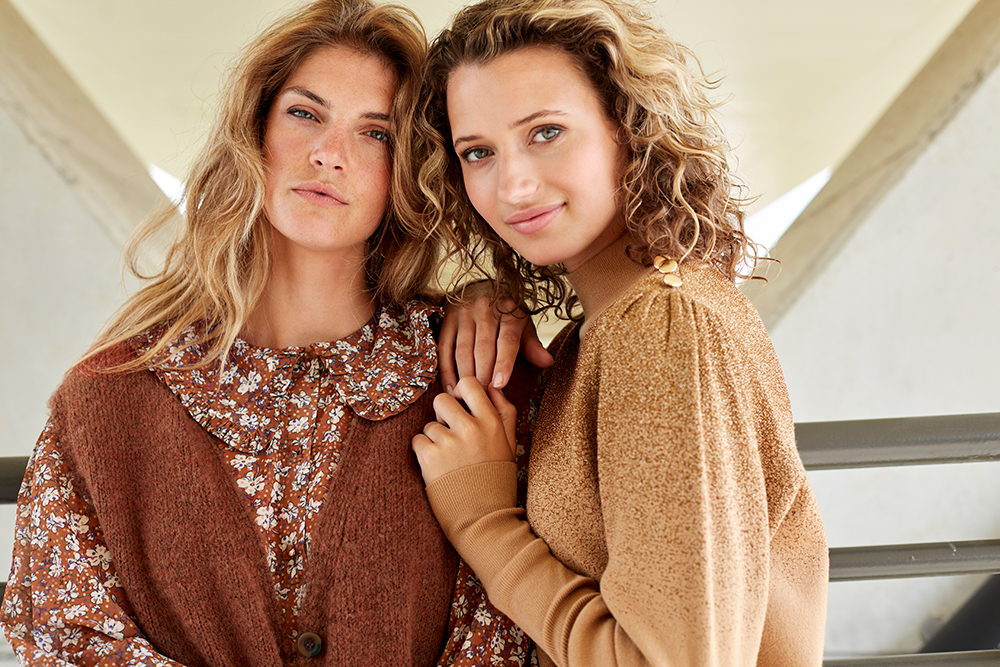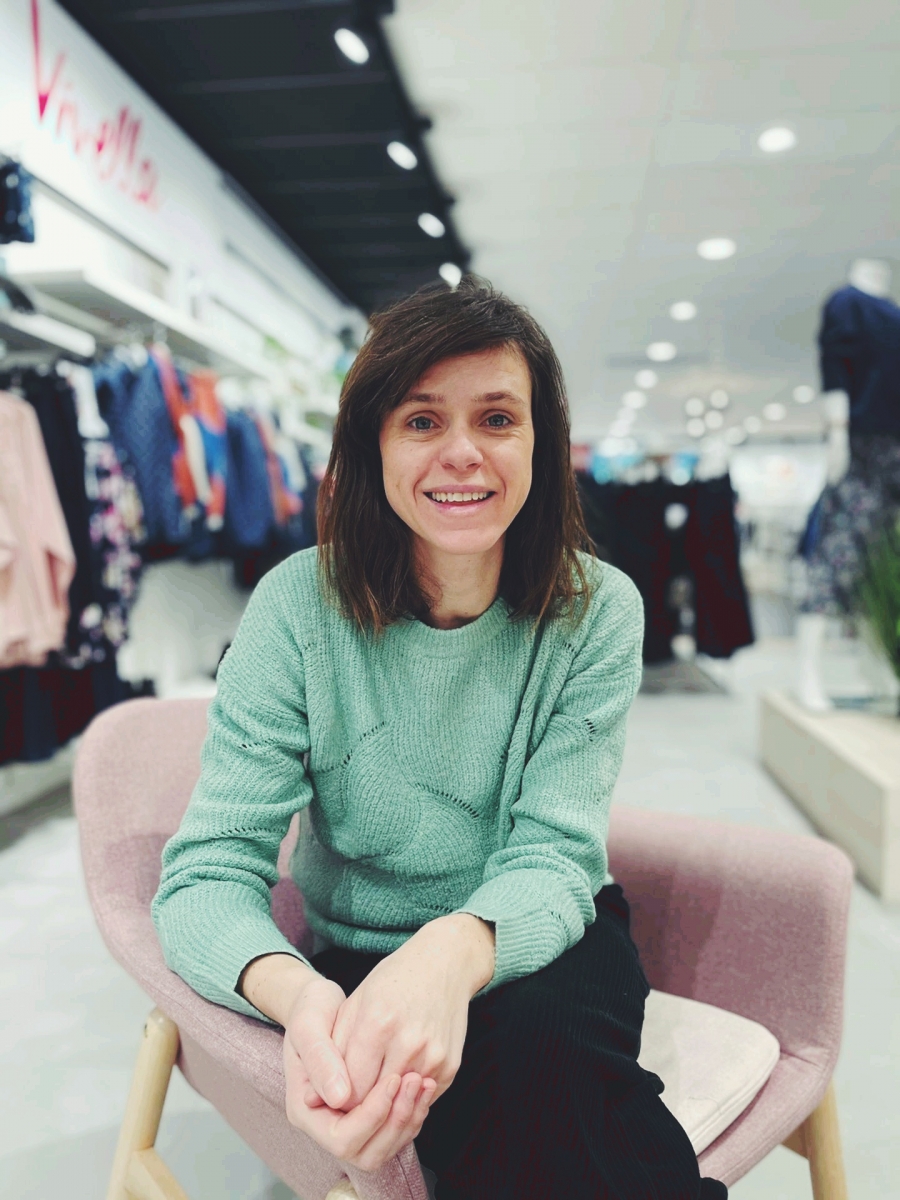Bel&Bo
Who is… Bel&Bo?
As a Belgian family business, Bel&Bo has been offering families a fun shopping experience for over thirty years now.
The colorful collections for women, men, boys and girls are sold in over a hundred stores, where specially trained sales teams help customers find the best outfits and combinations.
Bel&Bo also offers plus-size clothing ranges, and takes great care to keep its clothes and accessories affordable.

![]()
Resources
Increasing the share of sustainable resources
Bel&Bo wants to systematically increase the share of sustainable resources used in its collections, and automatically includes this criterion in the sourcing process. The purchasing team always asks for a sustainable alternative to traditional resources. If this alternative meets the necessary criteria (which range from price to quality and certifications), the team goes ahead with it. Bel&Bo keeps track of all its resources via a carefully maintained fabrics database and subjects every sample to rigorous quality testing. So Good So You! is one of the brand’s showpieces in this respect: all the items from this collection are made from organic cotton, lyocell, recycled polyester and other sustainable materials.
![]()
Design
Transitioning to a circular model
Bel&Bo plans to transition to a circular way of working, laying the foundations with the So Good So You! collection. In addition, the label is looking for partners who are well-versed in the circular fashion industry, so Bel&Bo can rely on their knowledge and experience to take the right steps.
![]()
Production
Teaming up with FWF, Amfori and Multimodaal Vlaanderen
Bel&Bo joined the Fair Wear Foundation (FWF) in 2014. The membership is a testimony to the brand’s eagerness to turn the fashion industry around and improve factory working conditions. Furthermore, Bel&Bo wants to assume full supply chain responsibility, not only mapping its manufacturing facilities but also the rest of the chain, detecting and mitigating both the social and environmental risks that could come up at every step. The idea is to adopt a high-risk due diligence process that will provide the brand with an overview of the risks pertaining to all of its business activities as well as with the knowledge required to reduce these risks to an absolute minimum.
Bel&Bo also became a member of Amfori in 2021. This organization assists retailers, importers, brands and other organizations in making their sourcing strategy more fair and more sustainable. The Amfori membership helps Bel&Bo to score its manufacturing locations for important environmental criteria, and to make improvements where necessary. Simultaneously, Bel&Bo is extending its ‘Code of Labour Practice’ and drawing up a ‘Responsible Business Conduct’ or RBC policy.
Finally, with the help of Multimodaal Vlaanderen, which was founded to aid companies in optimizing their transportation practices and in making them more environmentally friendly, Bel&Bo is looking into its incoming flows and trying to implement greener transportation options whenever possible. The team is, for instance, exploring the possibility of having its non-time sensitive deliveries discharged closer to the Bel&Bo headquarters in Deerlijk, instead of shipping the containers via Antwerp or Rotterdam.
![]()
Retail
Transportation and packaging work groups
Bel&Bo wants to improve the energy efficiency of its stores, its offices and its warehouse. In addition, the Carbon Footprint work group is analyzing the brand’s transportation operations to see where things can be improved. Bel&Bo also makes sure to regularly put the So Good So You! collection in the spotlights to alert customers to the importance of sustainability.
Lastly, the Sustainable Packaging and Delivery work group is looking for more eco-friendly ways to get Bel&Bo items to the customer’s doorstep. Hence the switch from regular plastic to recycled plastic, and hence the brand’s encouragement of customers to recycle, for instance by allowing them to leave their packaging at the check-out so Bel&Bo can turn it into new shopping bags in a closed-loop system.
![]()
Consumption
Maintenance tips, repair service and tools
Bel&Bo provides customers with all the information they need to keep their clothes in ship shape, supporting them in taking better care of their items and making sure they last as long as possible. The brand even has a repair service – either mending customers’ clothes or offering them the tools and information they need to repair their favorites themselves. Again, this is Bel&Bo’s way of motivating customers to extend the lifespan of their purchases.
![]()
End of life
Partners for a circular way of working
The Belgian brand wants to take back customers’ used clothes and come up with the most efficient way to put them to use again in a circular process. This goal is translated into short-term and long-term actions. As regards the former: Bel&Bo is looking for a strategic partner to set up a take-back system, as well as teaming up with Wereldmissiehulp to collect textile waste flows. In the further future, the brand is planning to shred the clothes, spin fibers from them, and turn these into new accessories and/or pieces of clothing. To get this ambitious project up to speed, Bel&Bo is currently talking to Wolkat (an international group of innovative textile recycling companies) and Be the fibre (a Belgian brand that designs only circular products and accessories).
And there’s yet another interesting long-term project being carried out. Using R&D, and with the help of the right technical partners, Bel&Bo wants to redesign its all-time bestseller – a Tencel dress – in a circular manner. As part of the SCIRT project (SCIRT standing for ‘System Circularity and Innovative Recycling of Textiles’), Bel&Bo will be working with HNST, Decathlon, Xandres, Petit Bateau, VITO, Flanders DC and other brands and organizations to come up with an answer to the problem of clothing waste as well as with a textile-to-textile recycling system.

What challenges are you currently facing?
Buysens: “As the demand for eco-friendly resources exceeds the supply in the current market, sustainable sourcing remains a challenge. Because they are so innovative, moreover, some circular products are a little too far removed from the day-to-day reality of running a business. It’s also not easy to translate our corporate sustainability efforts to the level of our brand or to specific products. Marketing our collections is another hurdle to overcome, as is our lack of R&D experience. That’s why we are looking for strategic partners to team up with. Finally, when extending our supply chain responsibility, we are running up against the limits of our data management system. It’s not always easy to get access to the information we need either. Suppliers must become more aware of the fact that transparency is crucial in today’s fashion industry.”
Tine Buysens (CSR manager Bel&Bo)
What does sustainability mean for you?
Tine Buysens: “As a Belgian family business, we inherently focus on long-term success and responsible ownership. We invest in a sustainable future across generations, acting not just as a profit-driven company, but as an organization that puts people and planet center stage, too. We have to adapt our business model to better respect the planetary boundaries and to get rid of inequality. That’s the only way to be future proof. We want to make beautiful fashion in a beautiful way. As a member of the Fair Wear Foundation, we want to do our bit for a fair fashion industry, and with the many planet and people-friendly initiatives we’re taking today, we’re contributing to a more colorful tomorrow.”
Which lesson(s) do you want to share?
Buysens: “I would recommend everyone to just start and find your own path. The road enriches us while we are traveling on it! Appoint a CSR manager who keeps a close eye on your sustainability targets and who helps implement them across the various departments. Leadership and getting support from the top levels of the company are also key, as are strategic partnerships and external dialogue. Thanks to our focus on due diligence and our membership of the Fair Wear Foundation, we’ve made huge leaps, so I would recommend everyone to do the same.”
This page was created in October 2021. Curious to find out where Bel&Bo stands now? Feel free to get in touch via the form on their website!